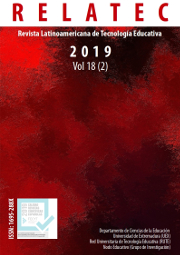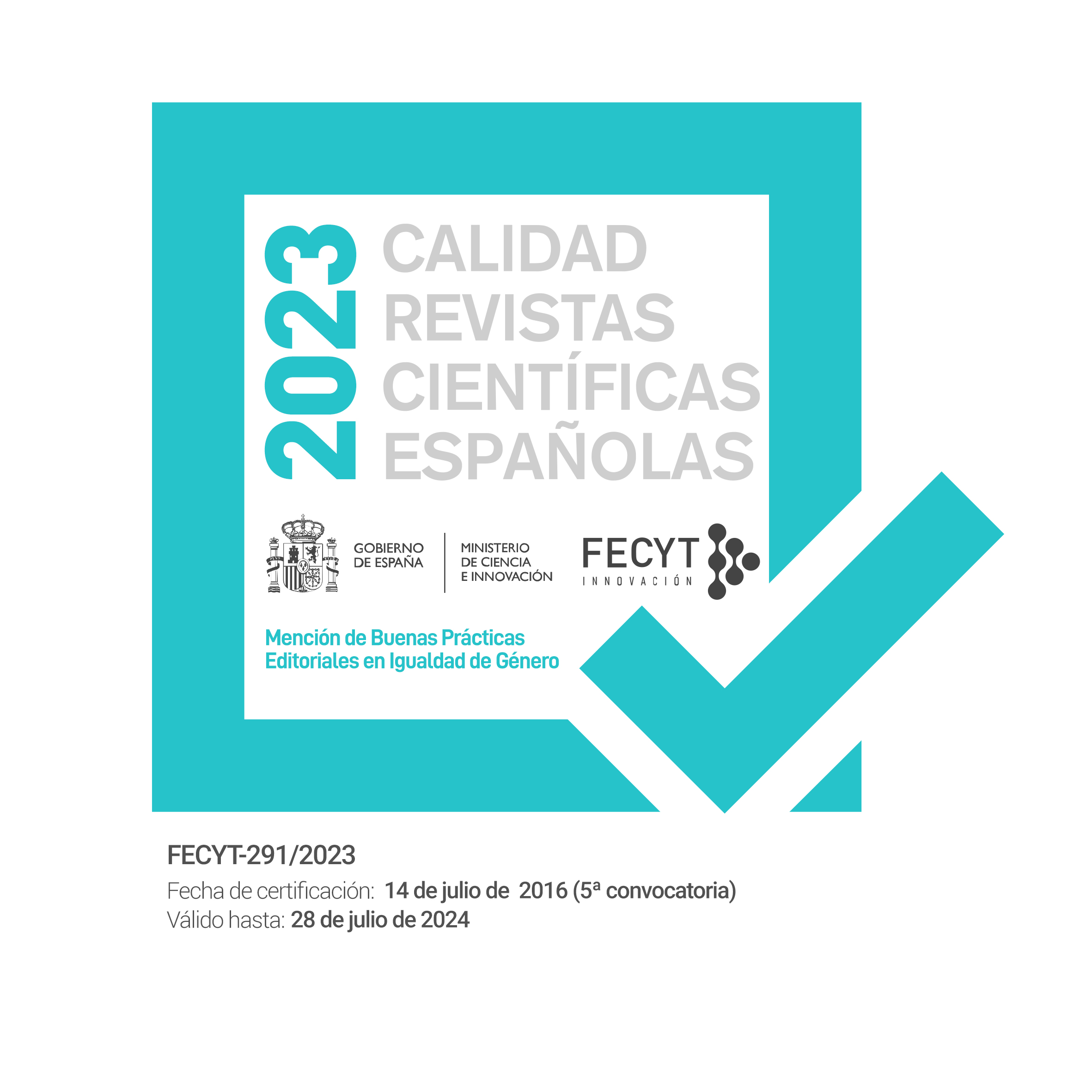Repositories of digital musical materials of open character in Portugal
DOI:
https://doi.org/10.17398/1695-288X.18.2.69Keywords:
Repositories, Digital Didactic Materials, Musical Education, Educational Success, Primary EducationAbstract
The contents multiplicity theme that integrates the repositories of digital educational resources makes these a simultaneously stimulating and enriching didactic material. In fact, they should constitute an undeniable support for the individual differences of students and be an effective source of didactic proposals to be used in the classroom context, acting as an aid to learning and students integral personal development. The present research focuses on the analysis of the repositories of digital musical materials of Musical Education in Portuguese context. The main goal of this study was to find out that open-web portals present digital didactic materials for Music Education and if these expose aspects that enhance its use in the classroom. Through a qualitative methodology and using the technique of content analysis, the contents of the available repositories were in depth analyzed. As a specific goal is to find out if the digital didactic materials for Music Education existing in the open repositories are in quantity and quality that potentiate its use as a resource to be applied in the classroom context. It should be noted that the main conclusions point to the scarce presentation of repositories as well as digital didactic resources made available to the field of Music Education.
References
Area, M. (2017). La metamorfosis digital del material didáctico tras el paréntesis Gutenberg. Revista Latinoamericana de Tecnología Educativa, 16(2), 13-28. Disponível em http://dx.medra.org/10.17398/1695-288X.16.2.13
Area, M. & Pessoa, T. (2012). De lo sólido a lo líquido: las nuevas alfabetizaciones ante los cambios culturales de la Web 2.0. Comunicar. Revista Científica de Educomunicación, 19(38), 13-20. Disponível em https://www.revistacomunicar.com/pdf/preprint/38/01-PRE-12378.pdf
Ashworth, D. (2012). Using music technology for musical performance. Em J. Price e J. Savage (Eds.), Teaching secondary music (pp.75-86). Londres: Sage.
Bardin, L. (2004). Análise de conteúdo. Lisboa: Edições 70.
Bogdan, R. C. & Biklen, S. K. (1994). Investigação Qualitativa em Educação. Porto: Porto Editora.
Castro, C. G. de S. (2014). A utilização de recursos educativos digitais no processo de ensinar e aprender: práticas dos professores e perspetivas dos especialistas. Universidade Católica Portuguesa.
Cepeda, O., Gallardo, I. Mª, & Rodríguez, J. (2017). La evaluación de los materiales didácticos digitales. Revista Latinoamericana de Tecnología Educativa, 16(2), 79-95. Disponível em http://dx.medra.org/10.17398/1695-288X.16.2.13
Coll, C. & Monereo, C. (2008). Educación y aprendizaje en el siglo XXI: Nuevas herramientas, nuevos escenarios, nuevas finalidades. Em C. Coll & C. Monereo (Eds.), Psicología de la educación virtual. Aprender y enseñar con las Tecnologías de la Información y la Comunicación (pp. 19-53). Madrid: Morata.
Cordeiro, F. da L. (2013). Ensinar e aprender com as tecnologias: competências profissionais docentes. Universidade Católica Portuguesa - Braga.
Costa, F. A., Peralta, H., & Viseu, S. (2007). As TIC na Educação em Portugal. Concepções e Práticas. Porto: Porto Editora.
Costa, F. A., Rodriguez, C., Cruz, E., & Frazão, S. (2012). Repensar as TIC na Educação. O Professor como Agente Transformador. (1a ed.). Carnaxide: Santillana.
Coutinho, C. & Lisbôa, E. (2011). Sociedade da informação, do conhecimento e da aprendizagem: desafios para educação no século XXI. Revista de Educação, XVIII(1), 5–22.
D’Amore, A. (2010). Musical Futures: An Approach to Teaching and Learning. (2a ed.). Disponível em https://www.musicalfuturesaustralia.org/uploads/1/2/0/1/12012511/musicalfutures2ndeditionteacherresourcepack.pdf
Encarnação, M. (2016). Que Educação queremos? Repensar o lugar da Música no currículo do séc. XXI. In Conferência Currículo do Séc. XXI: competências, conhecimentos e valores (p.7). Lisboa: APEM - Associação Portuguesa de Educação Musical.
Fernandes, S. G. & Coutinho, C. P. (2014, Dezembro 30). Tecnologias no Ensino da Música: revisão integrativa de investigações realizadas no Brasil e em Portugal. Educação, Formação & Tecnologias - ISSN 1646-933X.
Fortin, M-F. (2009). Fundamentos e etapas do processo de investigação. Loures: Lusodidacta.
Frega, A. L. (2011). Investigación musical. Para tiempos de cambio en enseñanzas musicales. Música y Educación, 85(122-127).
Johnson, C. (2017). Teaching Music Online: Changing Pedagogical Approach When Moving to the Online Environment. London Review of Education. 15(3), 439-456. doi:10.18546/LRE.15.3.08
Gohn, D. (2008). Um breve olhar sobre a música nas comunidades virtuais. Revista da ABEM, 19(113-119).
Kardos, L. (2012). How Music Technology Can Make Sound and Music Worlds Accessible to Student Composers in Further Education Colleges. British Journal of Music Education, 29(2), 143-151.
Lankshear, C. & Knobel, M. (2008). Nuevos alfabetismos: su práctica cotidiana y el aprendizaje en el aula. Madrid. Morata/Ministerio de Educación.
Lebrun, M. (Ed.) (2012). La littératie médiatique multimodale. Québec: Presses Universitaires du Québec.
Lipovetsky, G. & Serroy, J. (2010), A Cultura-Mundo, resposta a uma sociedade desorientada. Lisboa: Edições 70.
Manuel, J. S. N. (2015). As TIC e a formação de professores. Lisboa: Faculdade de Ciências Sociais e Humanas (FCSH).
Milhano, S. (2011). Ensino e aprendizagem da música com as TIC - da inovação tecnológica aos novos modos de integração da interacção pedagógica. Em O. C. e Sousa, C. Cardoso e M. Dias (Eds.), Formar professores, investigar práticas (pp. 112–115). Lisboa: Escola Superior de Educação de Lisboa.
Prensky, M. (2010). Teaching Digital Natives: Partnering for Real Learning. Thousand Oaks, Califórnia: Sage.
Quivy, R. & Campenhoudt, L. V. (2008). Manual de Investigação em Ciências Sociais (5ª ed.). Lisboa: Gradiva.
Proença, S. C. de A. (2014). Perspetivas de qualidade sobre recursos educativos digitais. Universidade de Lisboa, Instituto de Educação.
Price, J. (2012). Working with a range of musicians. Em J. Price & J. Savage (Eds.), Teaching secondary music (pp.87-97). Londres: Sage.
Ramos, J. L. & Espadeiro, R. G. (2014). Os futuros professores e os professores do futuro. Os desafios da introdução ao pensamento computacional na escola, no currículo e na aprendizagem. Educação, Formação & Tecnologias, 7(2), 4‐25.
Ramos, J. L., Teodoro, V. D., & Ferreira, M. F. (2011). Recursos Educativos Digitais: Que Futuro? DGIDC.
Rêgo, C. E. (2015). As TIC no currículo da escolaridade obrigatória. Universidade Portucalense.
Reints, A. & Wilkens, H. (2014). The quality of digital learning materials. Holanda: Kennisnet / UNESCO-IHE.
Torres Otero, L. (2010). Las tecnologías en el aula de música. Bases metodológicas y posibilidades prácticas. Sevilha: MAD.
Vincent, M. C. & Merrion, M. (1996). Teaching music in the year 2050. Music Educators Journal, 82(6), 38-42.
Downloads
Published
Issue
Section
License
Authors who publish in this journal accept the following conditions:
1. The Author retains copyright in the article. Upon acceptance of the article, the author shall grant to the Publisher the right of first publication of the article. with the dcoument registered with the Creative Commons Attribution-NonCommercial-NoDerivative 4.0 International (CC BY-NC-ND) license, which allows to third parties to use what is published whenever they mention the authorship of the work and the first publication in this journal.
2. Authors can make other independent and additional contractual agreements for the non-exclusive distribution of the article published in this journal (eg, include it in an institutional repository or publish it in a book) provided they clearly indicate that the work was published for the first time in this journal.
3. Authors are allowed and recommended to publish their work on the Internet (for example on institutional or personal pages) before and during the review and publication process, as it can lead to productive exchanges and a greater and faster diffusion of published work (see The Effect of Open Access).









